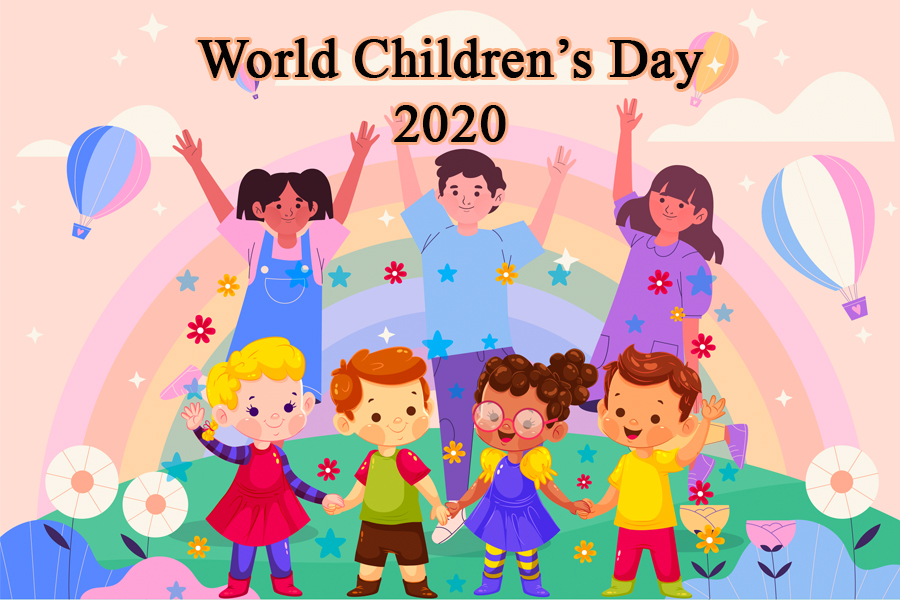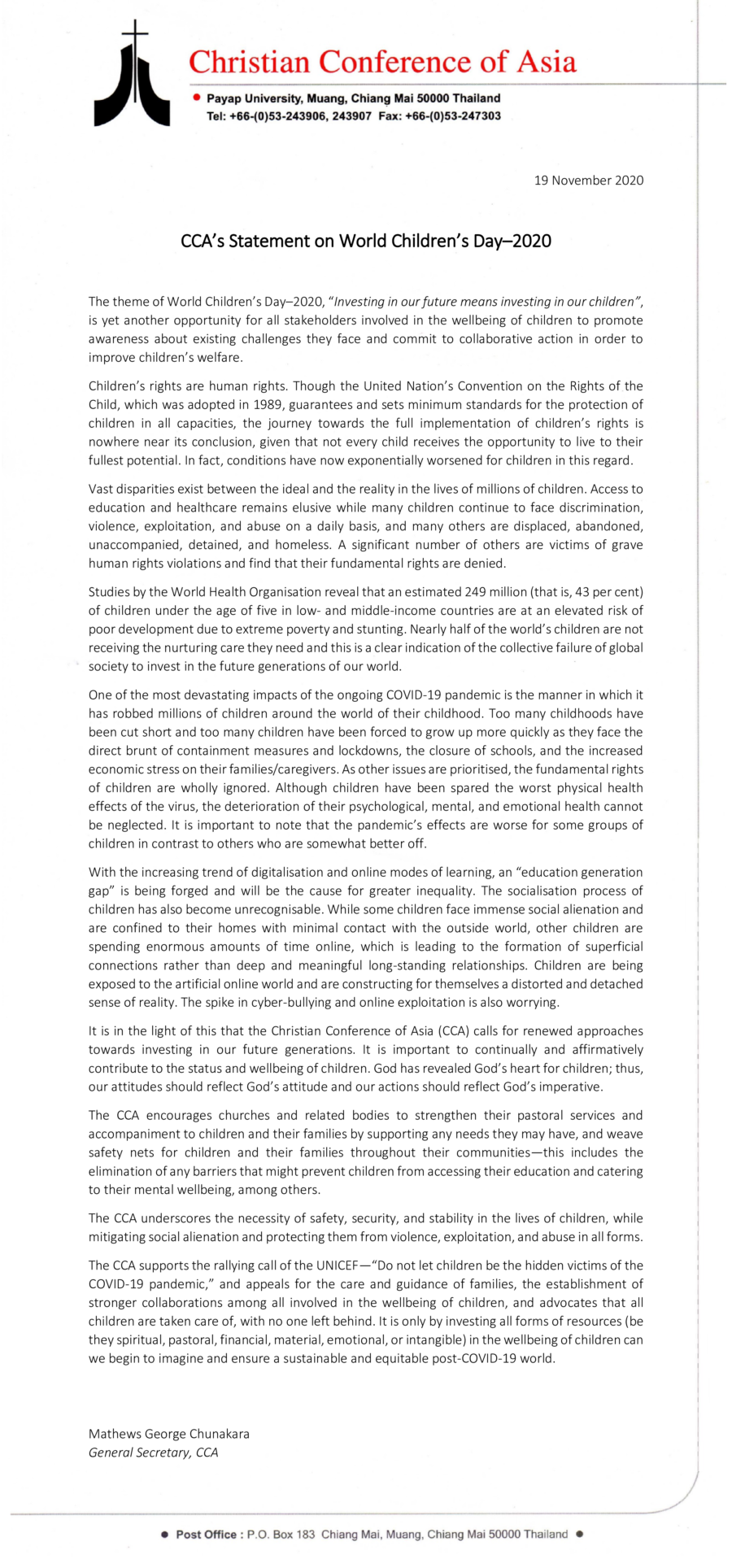CCA calls for inspired leadership to combat sufferings of children amidst the COVID-19 pandemic on World Children’s Day–2020

CHIANG MAI: A statement released by the General Secretary of the Christian Conference of Asia (CCA), Dr Mathews George Chunakara, on the occasion of World Children’s Day 2020 exhorted churches and related organisations “to strengthen their pastoral services and accompaniment to children and their families by supporting any needs they may have, and weave safety nets for children and their families throughout their communities.”
In the statement, Dr Mathew George Chunakara noted the grave and adverse impacts of the COVID-19 pandemic on children. Stating that “too many childhoods have been cut short” due to the pandemic, the CCA General Secretary observed that children who were on the brink of vulnerability were at higher risk. He highlighted the ever-increasing digital divide and the education generation gap, and lamented the social alienation that children were facing.
The General Secretary of CCA called for ecclesial leadership to ensure “the safety, security, and stability in the lives of children, while mitigating social alienation and protecting them from violence, exploitation, and abuse in all forms.” He appealed for the care and guidance of families and the establishment of stronger collaborations to ensure the wellbeing of all children.
The full text of the CCA General Secretary’s statement on World Children’s Day can be found below.











